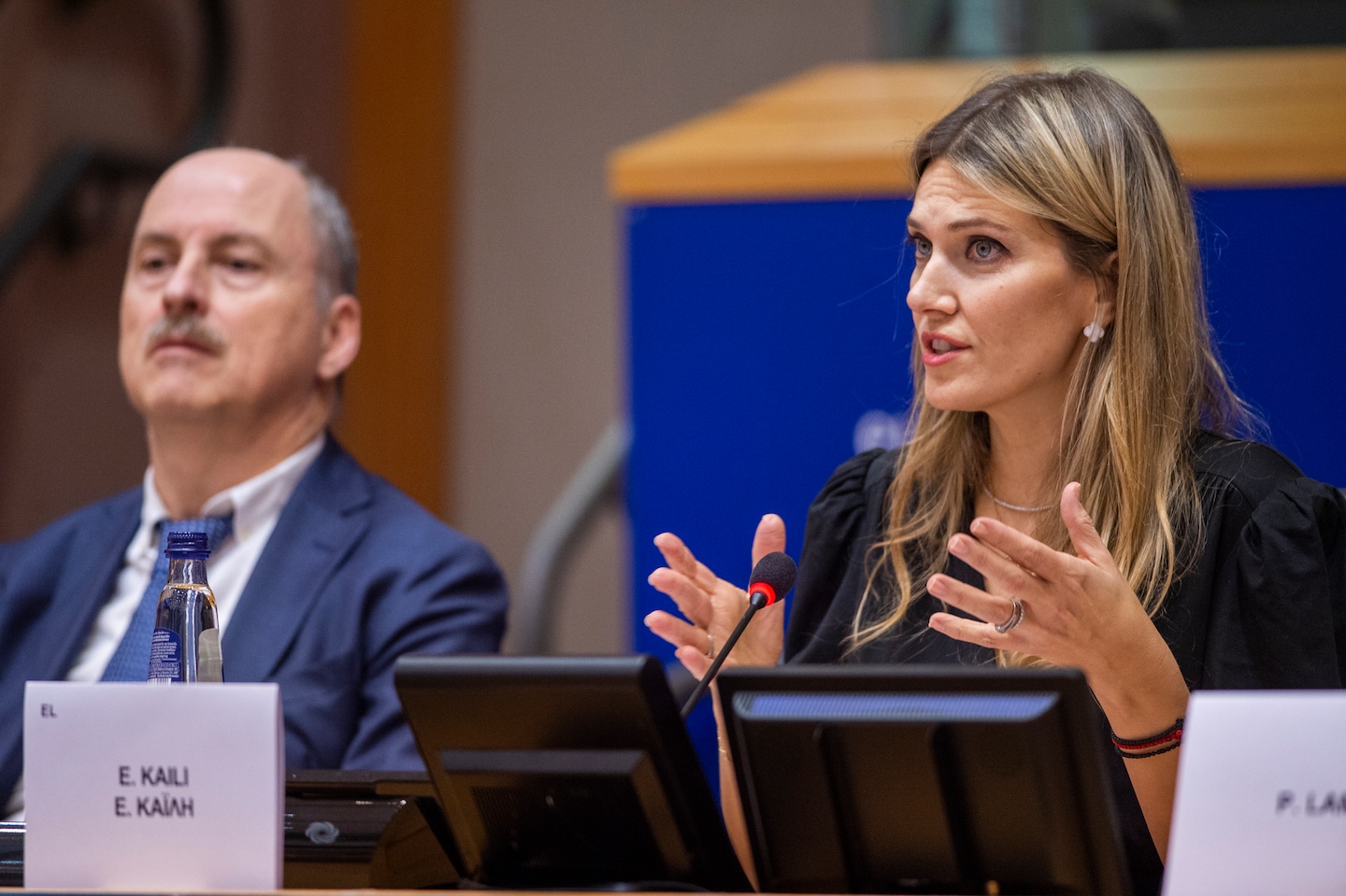In the nearly two weeks since Belgian media broke news of the probe, the affair now called “Qatargate” has given E.U.-watchers much to fret about.
Four people have been charged on suspicion of money laundering, corruption and taking part in a criminal organization on behalf of an unnamed “Gulf State,” widely reported to be Qatar. Police found more than 1.5 million euros ($1.59 million) in cash spread between homes and the now-infamous hotel suitcase. Ten parliamentary offices have been sealed.
On Thursday, Eva Kaili, the Greek parliamentarian who until last week was one of the body’s 14 vice presidents, will appear in a Belgian court for a pretrial hearing. Two others — her partner, parliamentary assistant Francesco Giorgi, and a former parliamentarian, Pier Antonio Panzeri — remain in custody. Kaili’s lawyer said she maintains her innocence. Qatar denies involvement.
Critics quickly seized on the mess. Hungary’s Viktor Orban, who has bristled at E.U. efforts to call out creeping authoritarianism in his country and is fighting with the bloc over billions in funding, has had particular fun with it.
On Dec. 12, his Twitter account posted a meme that showed a group of men laughing hysterically, with the words: “And then they said the [European Parliament] is seriously concerned about corruption in Hungary.”
He also retweeted a picture of the cash seized by Belgian police, commenting: “This is what rule of law looks like in Brussels.”
Brussels is not particularly interested in Orban’s crowing. But it would be unwise to underestimate the damage this type of scandal — and rhetoric — can do, experts said.
“This is very damaging for the European Union, both internally, in terms of the legitimacy of the European project to citizens, and to the image it has in the outside world,” said Alberto Alemanno, a professor of European Union law at the business school HEC Paris and an advocate for transparency in government.
The E.U., under fire from the likes of Orban, has a tendency to rebuff good-faith criticism, he said, rather than look within.
In her first remarks on the scandal, European Parliament President Roberta Metsola seemed to cast this very European scandal as an outside job, the work of “malign actors, linked to autocratic third countries.”
“The enemies of democracy for whom the very existence of this parliament is a threat will stop at nothing,” she said.
Some members of parliament at first seemed to downplay the significance of the charges, with one reportedly saying that a few bad apples would not spoil the rest. One political group tried to pin the blame on the other.
Others point to systemic problems. “While this may be the most egregious case of alleged corruption the European Parliament has seen in many years, it is not an isolated incident,” Michiel van Hulten, director of Transparency International E.U., said in a statement last week.
The European Parliament “has allowed a culture of impunity to develop,” thanks to lax financial rules and the absence of independent ethics oversight, he said, noting that parliamentarians have themselves blocked attempts to change that.
Van Hulten called for the European Commission to publish its “long-delayed proposal on the creation of an independent E.U. ethics body, with powers of investigation and enforcement.”
Although top E.U. officials have expressed concern, there are few signs significant reform is imminent. Well before “Qatargate,” Ursula von der Leyen, president of the European Commission, called for an E.U. ethics body, but progress has been modest.
Officials here have seemed eager to talk about anything else. When E.U. leaders gathered in Brussels last week, the widening investigation was not officially on the agenda.
If the E.U. stays mum, it risks letting its critics speak for it, potentially fueling euroskepticism and undercutting the bloc’s effort to lead on rule of law and human rights.
Alemanno said Brussels needs to find its voice, quickly. “If the E.U. can’t provide a strong institutional response to this now,” he said, “then when?”



